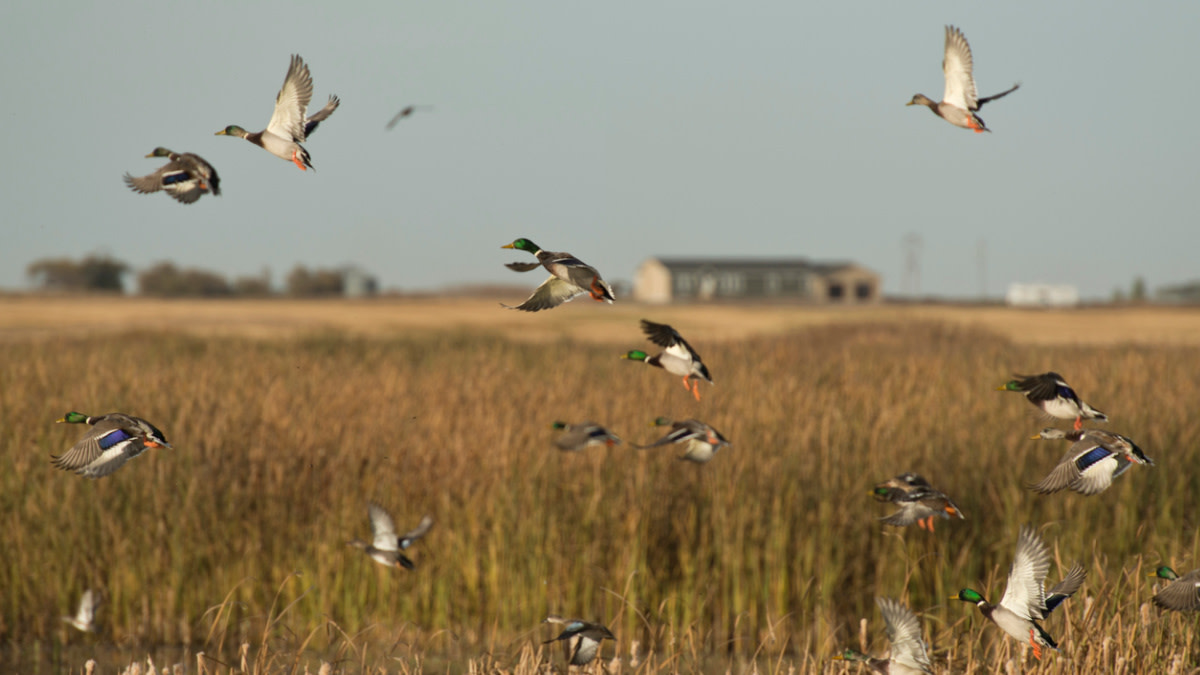
Florida is home to 21.6 million people on 65,758 square miles of land. That’s a little over 400 people per square mile. With about 900 people moving into the Sunshine State every day, conflict over public land use is escalating.
Residential development and sprawling retirement communities are rapidly encroaching on many of Florida’s best public waters for duck hunting. While many homeowners seek to end hunting on these waters, sportsmen are trying to keep waterfowling alive and accessible, and the Florida Wildlife Commission (FWC) is caught in the middle trying to please all stakeholders.
In 1997, FWC established Restricted Hunting Areas for the first time. These areas allow limited hunting with a special permit and attempt to balance public safety concerns and the high demand for hunting access.
The FWC has only established four of these areas in the last 24 years. But to address growing concerns about residential proximity to hunting, which stems from homeowner’s associations and real estate developers with property near public water, FWC set out to amend the rules regarding the establishment of RHAs. The most limiting of these proposed changes is the prohibition of taking game with a firearm on public water within 300 feet of a dwelling unless the hunter is the dwelling owner or has written permission from said owner.
“This proposed rule change will further limit public access to hunting opportunities, specifically waterfowl hunting,” a press release from Congressional Sportsman’s Foundation said. “With the ever-increasing rate of suburbanization taking place in Florida, access to publicly owned land and water is important for many of the state’s hunters and is critical for supporting hunter recruitment, retention, and reactivation efforts.”
A Clean Record FWC started creating bird sanctuaries in 1961. These areas prohibit the take of wildlife with a gun. At the time, their establishment addressed a similar public demand for increased safety measures regarding hunting in residential areas. FWC established 123 of these sanctuaries between 1961 and 1996.
All other “submerged sovereign lands,” Florida’s phrase for public waters, are legal to hunt as long as a public access point exists and no other extenuating circumstances arise.
Additionally, Florida Statute 790.15 states that it is lawful to discharge a firearm on any “public roads or properties expressly approved for hunting by the Fish and Wildlife Conservation Commission or Florida Forest Service.” Essentially, this law states that a firearm can be discharged as long as it doesn’t “projectile trespass” and is shot safely without endangering life, limb, or property.
Travis Thompson of Cast and Blast Florida pointed out that there are no documented instances of a waterfowler shooting “life, limb, or property” in Florida.
“I did a public records request. There are no incidents,” Thompson told MeatEater. “There are complaints about gunfire, but gunfire is going to sound about the same from 600 feet away as it is from 300. We simply don't need this rule because the protections of homeowners are already covered in statute 790.15.”
A Shaky Future Thompson is concerned about what these proposed amendments would do to the accessibility of duck hunting.
“The town I live in, Winter Haven, there's 84 lakes inside the city limits. Now some of those are super developed, but a lot of them are not. And these are lakes that people can go on a Saturday morning and put their jon boat in and go shoot two wood ducks or go shoot a couple of mottled ducks or whatever. They have a very low barrier of entry,” Thompson told MeatEater.
Thompson believes that more RHAs with stricter rules will ultimately result in lower hunter retainment.
“So, what you’re going to see with more RHAs is a constraint of hunters. Homeowners are demanding spraying on lakes which wipes out habitat and harsher restrictions on where we can hunt,” said Thompson. “We can recruit hunters all day, but we can’t retain them. People will just get frustrated and walk away from duck hunting.”
Other proposed changes include that local law enforcement will have responsibility for enforcing RHA rules and that signs must be posted along the entire border of the RHA. Additionally, in place of bird sanctuaries, FWC will establish critical wildlife areas in places that require extra protections for vulnerable species.
Sportsmen Win—For Now The August FWC meeting made the ideal setting for stakeholders to rally against these proposed rule changes. Attendees included Delta Waterfowl, Backcountry Hunters and Anglers, Artemis, Safari Club International, the National Shooting Sports Foundation, the National Wildlife Federation, and more. In addition, representatives Tommy Gregory and Jason Shoaf of the Florida Legislative Sportsmen’s Caucus wrote the FWC, urging them to reconsider this ruling.
The collaborative pushback was successful. On Aug. 23, the FWC agreed to postpone the proposed changes and accept suggestions for new rules. This day marked a massive win for Florida sportsmen. But the writing is on the wall as urban sprawl continues to encroach on Florida’s public waters.
“As duck hunters and outdoorsman, it's important we rally against these rules changes,” said MeatEater’s waterfowl expert, Sean Weaver. “It's worse than just further restricting hunting access; it takes away the lake-edge habitat where the ducks feed and live, and ultimately takes away from hunter success.”
Weaver believes that urban waterfowl hunting can be done safely—without a 300-foot rule.
“Restricting hunting on the shallow lake edges where the vegetation grows is to restrict duck hunting these waters almost entirely. And while safety in these urban areas might be a concern, we have widespread urban goose hunting seasons that have been implemented safely and effectively,” said Weaver.
Although RHAs are a localized concern for Florida, population encroachment issues like this are arising across the country. So, it’s crucial to be aware of the impacts this sprawl can have on land access, use, and conservation efforts.
“Waterfront development will continue to be the norm across Florida and the country,” said Weaver. “And if these kinds of regulations are put in place, they'll continue to rid waterfowlers of valuable hunting access."




